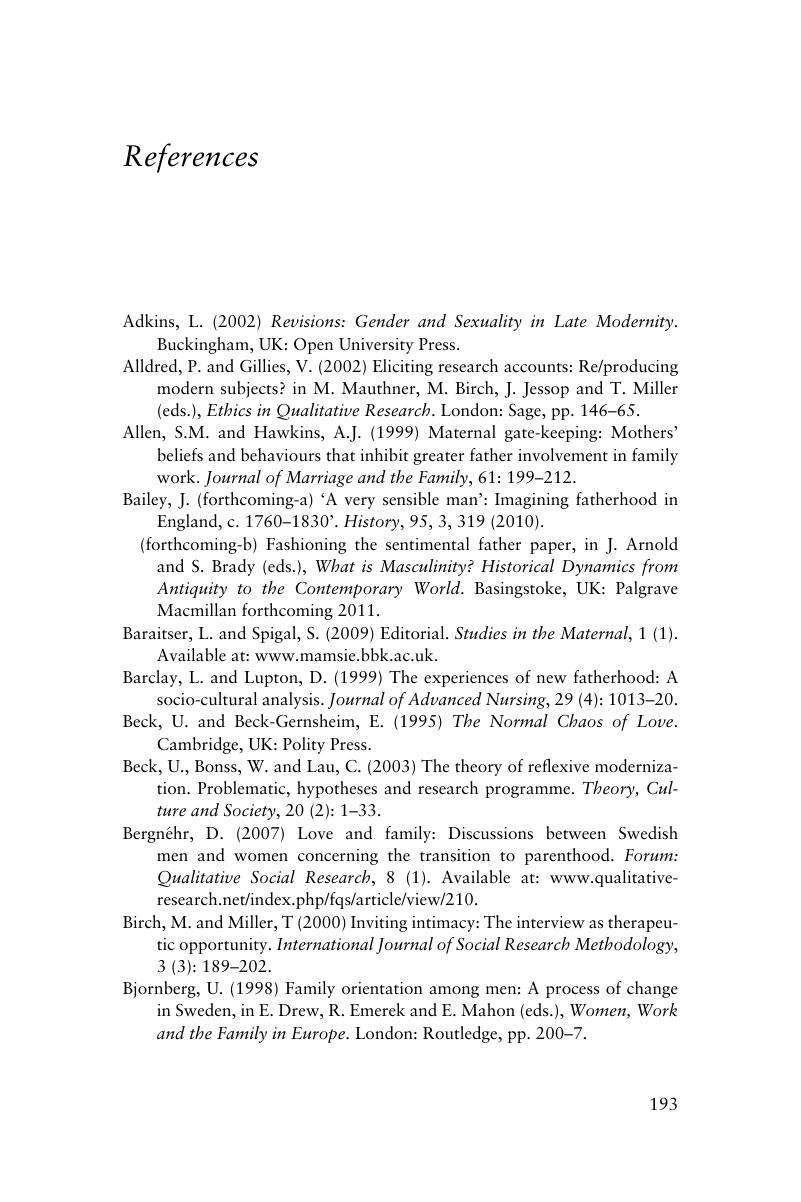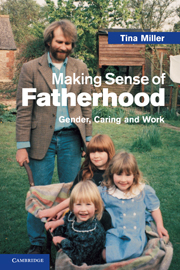Book contents
References
Published online by Cambridge University Press: 01 March 2011
Summary

- Type
- Chapter
- Information
- Making Sense of FatherhoodGender, Caring and Work, pp. 193 - 203Publisher: Cambridge University PressPrint publication year: 2010



